Immunisations in secondary school

Immunisations in secondary school
The school nursing team offer the following vaccinations in secondary school.
We also like to record vaccine refusals from both young people and parents to ensure their health records are update and to identify any concerns that are highlighted. If you are unsure about having the vaccinations or if you would like to discuss anything further call our admin hub 0800 170 7055 (Mon-Fri 8am-6pm).
HPV vaccinations in Year 8 (2 doses, 6 months apart)
HPV vaccine All 12 and 13-year-olds in school Year 8 will be offered on the NHS the human papillomavirus (HPV) vaccine.
It helps protect against cancers caused by HPV, including:
- Cervical cancer
- Some mouth and throat (head and neck) cancers
- Some cancers of the anal and genital areas
As well as protecting against 90% of genital warts. In England, girls and boys aged 12 to 13 years will be routinely offered their HPV vaccinations when they're in school Year 8. It's important to have both doses to be protected.
Men ACWY and DTP (Diphtheria, Tetanus, Polio) vaccinations in Year 9
Men ACWY vaccine This is given as a single vaccine and protects against four different strains of meningococcal bacteria that cause meningitis and blood poisoning (septicaemia): A, C, W, and Y.
3-in-1 teenage booster (DTP) The teenage booster, also known as the three-in-one or the Td/IPV vaccine. It is a single vaccine given to boost protection against 3 separate diseases: tetanus, diphtheria, and polio.
This Immunisations for Young People Guide outlines and explains these vaccinations and why they are needed.
Flu vaccine
The children's flu vaccine is offered as a yearly nasal spray to young children to help protect them against flu. Flu can be a very unpleasant illness for children, with potentially serious complications, including bronchitis and pneumonia. Vaccinating your child will not only protect them against flu but will also help protect more vulnerable friends and family by preventing the spread of flu.
The vaccination will be given by a quick and simple spray up the nose. This is offered at your GP surgery.
You can find more information here Children's nasal flu vaccine (yearly)
You can find the Flu Vaccination Consent Form here. Please complete the online form to provide consent for your child's vaccination.
When will the vaccinations take place?
Immunisation dates:
- HPV vaccinations
- Dose 1 - June to July (year 8)
- Dose 2 - April to May (year 9)
- Flu vaccinations: October - December
- Teenage booster vaccinations: Feb- March.
The school nursing team will visit your child’s school once to offer the vaccinations. A consent form (paper or e-consent) will be sent home approximately two to four weeks prior to the planned immunisation session. (For exact dates of Immunisation sessions please check with your child’s school calendar.)
Who delivers the vaccines to my child?
School Aged Immunisation Service deliver the routine national immunisation programme to school aged children. This includes children who may be home schooled, and others not in school.
Vaccine consent
What consent is needed for my child to have a vaccine?
Consent for vaccinations is initially required from parents. The decision to have the vaccination is legally the young persons. However, the Immunisation Practitioner would much rather have the parents’ permission as well. If we do not receive a completed consent form before the vaccination session, we will look to offer the young person the opportunity to self-consent on the day (secondary school vaccinations only). This is in line with the Gillick Competency Framework.
I do not consent for my child to receive the vaccine
Please be assured if we receive a written refusal of consent, we will not vaccinate your child. However, we do have a duty of care to advise your child where they may be able to access the vaccine if they choose to have it later.
What happens if my child has missed the vaccination?
School Aged Immunisation Team can also provide catch up clinics for any child or young person who missed the above vaccination in school.
If your child has missed their immunisation in school or is home educated, you can bring them to one of our community immunisation clinics. We have clinics across county, and you can book into any clinic that is convenient to you. Please contact us on 0800 170 7055 (Mon-Fri 8am-5pm)
Nutrition and physical wellbeing

Nutrition and physical health
Children should be encouraged to eat a variety of foods from the Eatwell plate the same as the rest of the family.
You are their role model. If you are an active family who include a healthy diet and healthy habits this is something they will see, and learn from.
You can contact the 0-19 admin hub by live chat or by giving the team a call on: 0800 170 7055 (Mon-Fri 8am-6pm).
Activity
Children should be getting at least 60 minutes of activity per day. This can be done in one go or broken up across the day. Being active has so many social, emotional, and physical health benefits.
It’s great to be active as a family and there are lots of things you can do together locally. We have some wonderful country parks, swimming pools and cycle routes to try.
Dental health
Avoid sugary food and drink before bedtime. They should be consumed less often and only at mealtimes. Try sugar free, diet or no added sugar drinks. Remember, plain water or lower fat milks are best. It’s free for kids under 18 to visit NHS dentists, so make sure you take them regularly.
Make sure your kids clean their teeth twice a day with a fluoride toothpaste. Help them brush once before bed and once at any other time that suits you and your family.
What should they be eating?
Your child should be encouraged to eat a variety of foods from the Eatwell plate the same as the rest of the family.
The four main food groups are:
- bread, other cereals and potatoes
- fruit and vegetables
- milk and dairy foods
- meat, fish and alternatives (such as eggs, pulses – peas, beans and lentils – nuts and soya).
There is no need to buy portion sized foods as this is more expensive and unnecessary.
Sugary foods and drinks are not advised, but if they do have them occasionally, try to eat at meal times rather than as snacks. This will be better for their teeth and dental health is very important at this stage.
Meals should be based around starchy carbohydrates for energy, such as bread and pasta.
Avoid giving salt at the table and takeaway foods and cooking with salt.
Children at this age should be drinking tap water as it’s the best option to quench their thirst and won’t damage their teeth. However, milk or diluted fruit juice (half and half) can be offered as an alternative. Stick to full fat milk until 2 years old and then semi-skimmed can be drunk.
National Child Measurement Programme
The National Child Measurement Programme (NCMP) - Roots and Wings, Vimeo
Child and Parents - Newcastle University, YouTube
Other useful resources
Start 4 life
This website provides trusted NHS help and advice during pregnancy, birth and parenthood.
The Eatwell Guide
The Eatwell Guide is one of the most well-known tools to follow for recommendations on eating healthy and achieving a balanced diet.
Start active, stay active: infographics on physical activity
Infographics explaining the physical activity needed for general health benefits for different age ranges.
Puberty

Puberty
Your teenager's brain undergoes lots of changes and rewiring during puberty which may mean their feelings and emotions can feel, and can be, a bit out of control.
It’s important to allow them time to express their feelings and emotions, whilst also keeping boundaries in place.
During puberty, your teen is more likely to be dominated by their feelings rather than logical thinking so trying to encourage mindfulness and resilience is important. We know that this can feel hard, keep trying and keep communicating with them.
There are lots of resources to help parents and young people talk through these changes. It is important to stress the changes are “normal” and happen to everyone, just that we cannot predict when these will occur.
Parenting teenagers can be a challenging time for parents and carers.
Young people want more freedom to explore their environment and friendships but as parents we want to keep our children safe.
The Relate website has some useful information and tips on talking to your children around a full range of issues from relationships to drugs and alcohol and managing behaviours.
The BBC created the Operation puberty video which helps to answer some questions around puberty.
We would also recommend the Health for Teens website for your to explore with your young adults.
Responsive parenting

Responsive parenting
As children grow up and they start school they might seem moodier, more sensitive, or just more tired than usual. Your child will be going through emotional changes in learning how to sit still and concentrate for long periods of time, learning about authority that is not parental and will also be feeling new emotions.
Parenting can be a challenge, and you won’t always get it right, but by being open and listening you help to build a trusting relationship with your child.
If you are worried you can contact the 0-19 admin hub by live chat or by giving the team a call on: 0800 170 7055 (Mon-Fri 8am-6pm).
You can access all the NHFT Wellbeing videos on our YouTube playlist.
Challenging behaviours and reward charts
Building a positive relationship with your child is the best way to help them develop positive emotional wellbeing. Sometimes it is difficult to understand why your child may display certain behaviours such as anger or being destructive.
It is worth taking time to take a few moments to think about what happened before the situation, during and after. This can help identify what is triggering the behaviour and provide ideas on what to do differently to reduce the chance of the behaviour occurring. It can also be useful to consider what you were feeling and thinking at the time but also what your child was feeling and thinking.
Reward charts can work well with children for the age group of five to seven – ensure children receive “reward points” for small, realistic achievements and that the rewards at the end of the week / set time are something that provides positive re-enforcement. I.e. choosing an extra bedtime story, choosing their favourite meal or a game to play. When using reward charts, rewards should not be removed once they have been earned.
Other elements to consider:
- Think about online activity and behaviours that children maybe witnessing through games and videos and how they may copy these (link into safety tab)
- Have clear rules about important matters (but keep to a minimum) be a positive role model by following these yourself
- Give more attention to your child when they are behaving sensibly rather than when they are behaving badly
- Look for the good things to praise, not criticise
- NEVER let them get what they want by misbehaving
Reacting to challenging behaviours
So what can you do to help make sure you react calmly in situations where your child may be presenting with challenging behaviours?
A useful tool suggested by NSPCC is to Take 5. This process encourages you as a parent to stop, breathe and react calmly even in the situation of your child screaming in the middle of a supermarket, for example.
Watch the NSPCC video from other parents, their experiences, and the suggestions they make on how to deal with challenging behaviour calmly.
Why do we lose control of our emotions by Kids Want to Know
Other thoughts, feelings and behaviours videos from NHFT
Thoughts, feeling and behaviours video
Early warning signs and our fight / flight / free response video
Other support services
- ChildLine is a service provided by NSPCC. Children and Young People can talk to a counsellor on line or on the phone about almost anything 0800 1111
- Chat Youth Counselling offers emotional wellbeing services East Northants
- Lowdown offers counselling and emotional wellbeing services Northampton
- NHS' 5 Steps to Mental Wellbeing gives information on keeping good mental wellbeing
- Service Six offers counselling and emotional wellbeing services Wellingborough
- Time2Talk offers counselling and emotional wellbeing services Daventry and South Northants
- The Mix offers mental health support for under 25s
- Young Minds offers information and support for children and young people's mental health
- Young Minds Parents Helpline to support family wellbeing
- Youthworks offers counselling and emotional wellbeing services Kettering and Corby
Safety

Safety
Having a child and keeping them safe can feel like a full-time job. Once they are on the move, it might feel like they are walking towards all the risks and you are running up behind them trying to protect them.
By being aware of what is in you and your child’s surrounding area you can help to reduce risk and keep them, and you, safe.
You can contact the 0-19 admin hub by live chat or give the team a call on: 0800 170 7055 (Mon-Fri 8am-6pm).
Dial 999 for an ambulance if your child:
- stops breathing or turns blue
- is struggling for breath
- is unconscious or seems unaware of what's going on
- will not wake up
- has a fit for the first time, even if they seem to recover.
ACCIDENTS AND PREVENTION
Accidents happen, and it can feel like they happen so fast they feel impossible to stop. However, by keeping your wits about you and being aware of possible risk you are helping to make it more likely that the accident won’t happen in the first place.
Accidents can come in all different ways and types including:
- Burns and scalds
- Choking
- Drowning
- Falls
- Strangulation
- Suffocation
- Accidental poisoning
The NHS website has some useful information and top tips to help you keep your child safe.
If your child has an accident it is important to know what to do and when you need to seek medical advice, the NHS website has a long list of information including where you can learn basic first aid on their website
Safety and pets
It is important from an early age to teach your child to respect the pets you have at home, Teaching them how to stroke gently, not to tug, pull, chase or grab the animals you share you space with, will help to keep them safe. For tips on keeping children safe around your family pets take a look at the BBC’s Teaching kids to care for animals article.
SUN SAFETY
Keeping your child safe whilst they are in the sun is important to protect their skin from the sun’s harmful UVA and UVB rays. Without sun safety and sun protection, sun burns, and dehydration can occur, and these can cause some serious issues for your child.
Here are some tips you can use to help with sun safety:
- If your child is going to be exposed to sunlight use a sunscreen with a minimum 50 SPF rating to protect them.
- If you are taking your child out in their pram do not cover their prams with any type of material as this can be very dangerous.
When a pram is covered it prevents the vital movement of air around your child so the air, they breathe out is the same air they breathe in. Without this movement of air, they will be breathing in a higher percentage of carbon dioxide, leaving them with less oxygen and potentially causing them to struggle or stop breathing.
If you have any questions or would like some more information regarding sun safety and your child, you can ask your health visitor or GP for advice.
Here is a list of additional resources:
- NHS England website
- The NCT’s website
- The Skin Cancer Foundation website
- The Baby Centre website
- For hot weather and baby safety visit the NHS website
ROAD AND TRAVEL SAFETY
Car seats
All children must use a car seat until they are 12 years old or 135 cm (whichever happens first).
The recommendations for the car seat position and type of seat change as the child grows and develops. The legal requirements for car seats can be found on the GOV.UK website. Specific safety advice relating to the car seat you have must be followed in order for it to work effectively.
Keeping walking safe
When walking near a road it is a good idea to:
- hold your child's hand - don't let them run ahead
- look out for and encourage your child to be aware of hidden entrances or driveways crossing the pavement
- put reins on a younger child if they're not strapped in a pushchair
- make sure your child walks on the side of the pavement away from the traffic
- Never let your child go near a road alone or even with an older child.
- Never let children play on driveways.
Children are usually not ready to crossroads on their own until they are at least eight years old - and many will not be ready even then.
Bicycle safety
Cycling is a fun, healthy, environmentally friendly, and cheap so is a great option for getting around. To stay safe on your bike be considerate of the following:
- Access ‘Bikability’ either via your child’s school or find a local provider - this is a free training package for children and young people using their bikes on the road.
- Wear a good quality well fitted helmet to protect your brain if you fall off your bike and hit your head.
- Before you set off make sure your bike is in good working order testing the brakes and ensuring tyres are pumped up.
- Plan routes to make sure you are choosing the safest route, and that the child will be able to handle.
Sleep

Sleep
Sleep is an essential part of any child’s growth and development. It promotes growth, strengthens immunity, helps with cell repair and healing, and maintains physical and emotional health.
Your child will need between 9 to 11 hours of sleep.
Getting good quality sleep is an important part of how your child might act during the day including their mood, wellbeing, ability to learn and retain new information.
If you have any concerns or queries, you can contact the 0-19 admin hub by live chat or give the team a call on: 0800 170 7055 (Mon-Fri 8am-6pm).
Good Sleep hygiene
Following good sleep hygiene tips can encourage your child to sleep well at night-time. Good sleep hygiene can be divided into five main areas of routine:
During the Daytime
- Spend at least 30 minutes a day outside.
- Have regular exercise such as playing in the park, cycling and / or attending an organised activity such as football or trampolining.
- Ensure exercise happens early in the day or directly after school. Avoid letting your child get exciting over activity around 4 hours before bed.
- Naps usually fade out at aged 3 years. Avoid naps after 2pm as this may affect your child’s ability to fall asleep at night.
Before Bedtime
- No more than an hour before bed, close the curtains and dim the light.
- During the hour before bed, turn off the TV, introduce calming activities such as reading a story, puzzles, colouring or listening to soothing music. Music that is only played at bedtime, helps to reinforce the association that it is nearing the time to go to sleep.
- Make sure your child is not hungry before bed. Offer a light supper such as warm milk and wholemeal toast or a yogurt. Avoid foods or drinks containing caffeine such as chocolate, coffee, tea, and cola, particularly in the late afternoon and evening.
- Do not return to the lounge (or daytime room) after the evening bath. This provides an environmental cue to your child that it is ‘time for sleep’.
- It is important to maintain a consistent routine every night. This helps to strengthen the association with sleep and strengthen the body clock.
The Bedroom
- There should be no electronic equipment in the bedroom.
- Prepare the bedroom for ‘sleep’. Ensure the room is quiet and dark and free of clutter.
- Ensure the bedroom temperature is comfortable. Between 16-18 degrees is an ideal temperature.
- All toys should be put away or covered.
- A comfortable bed is important.
- Keep lighting low, avoid main lights.
- Environmental noise should be kept to a minimum.
- Remove any nocturnal pets that may interrupt sleep.
Bedtime and wake-up time
- Set a bedtime to be maintained every night that is age appropriate to your child
- Maintain a consistent sleep time and wake time 7 days a week. This strengthens the body clock.
Settling your child
- Once the routine is complete, avoid extending the bedtime routine, for example, one more story or one more cuddle. Say a magic phrase, such as ‘time for sleep’.
- Turn out the light- the door may be left ajar if needed.
- Leave your child to settle alone.
Useful information
Books:
Sleep Problems in Children and Young People: A Simple Teaching Aid
DrYemula.C.Roberts.A.(2014) . Health Insights 4U Ltd.
Sleep problems in children and adolescents: the facts
Prof.Stores.G.(2009) Oxford University Press.
My emotional wellbeing

My emotional wellbeing
Having a child is a whirlwind of emotions that don’t always feel like they make sense. You can love them wholeheartedly and sometimes you just feel overwhelmed.
If you are feeling worried, sad, or depressed talk to your healthcare professional such as your GP or call The Mental Health Number on 0800 448 0828.
You are not alone in these feelings and it is important to share them.
If you are struggling with your mental health, you can contact services such as our NHS Northamptonshire Talking Therapies or 24/7 Mental Health Number.
The 0-19 Administration Hub can be contacted by:
- Live Chat (Monday to Friday, 9am – 5pm)
- Phone (Monday to Friday, 8am – 6pm) 08001707055 Option 4
Emotion coaching
Emotion coaching is an approach to support parents to help their children when they feel distressed. It works for the little things and the big things. Emotion coaching is a naturalistic parenting approach which has been observed in research to have a beneficial impact on children’s emotional and physical health, their capacity for empathy and their social relationships. The amazing thing is that we can learn this approach and adapt our parenting even if it isn’t our natural style or how we were brought up – we don’t even need to get it right all of the time to have a beneficial impact for our children.
Find out more about emotion coaching.
Our ten tips from NHS Northamptonshire Talking Therapies
We have some advice on how you prioritise your health and wellbeing; and ensure that you can take some time out today, or any day for that matter, to focus on you.
- Talk to someone and stay connected, sometimes just talking and contacting another person can make you feel much better. This can be a relative, a friend or a professional.
- Try to organise a sleep routine, go to bed at the same time and get up at the same time. Sleep is important to your wellbeing even if the normal structure and routine you once had has been disrupted.
- Try to write down three positive things a day you have achieved. These do not need to be big as sometimes just posting a letter is an achievement.
- Take a breath, breathe in for 7 seconds and out for 11 seconds, this will refocus you and give you space.
- Get outside, go for a walk, or stand in your garden just take in some fresh air; ensure you see daylight once a day during your allotted exercise break. Given all the pressures, make sure you have time for yourself.
- Set some small goals for your day that are achievable to give you a sense of purpose.
- Eat regular and healthy meals to ensure your body is well fuelled.
- Make sure with all the juggling of extra roles, that we no longer expect miracles of ourselves, we are trying to do more in abnormal circumstances, with often less support. On any given day, our best is good enough and our best will be different on different days; that’s okay, that is normal.
- Discover mindfulness apps on your phone, they can provide useful techniques.
- Most importantly be kind to yourself, it's okay not to be okay during these very difficult times.
The Changing Minds IAPT Team are a self-referral service so please do feel empowered to reach out if you need our help.
Asthma

Asthma
We have gathered some useful resources to support parents and carers to understand and to manage asthma in children and young people.
- Video: Asthma care for children and young people (Transformation Partners in Health and Care)
How children and young people can be helped to manage their asthma (video duration 4min 36sec) - Video: If your child has asthma (#AskAboutAsthma)
Dr Mando Watson explains how your GP can help if your child has asthma (video duration 0min 54sec) - Video: Wheeze and asthma explained (#AskAboutAsthma)
Dr Mando Watson explains the difference between asthma and wheeze (video duration 2min 20sec) - Video: Living with asthma as a young person (#AskAboutAsthma)
Robert Adoo Kissi-Debrah explains what asthma is and how he as a young person has learnt to manage the condition (video duration 1min 7sec) - Website: Asthma information and resources (#AskAboutAsthma)
Useful information and resources about asthma for children, young people, parents, carers and schools - Video: How to do a spirometry test (Lungs At Work)
A short animation demonstrating how a spirometry test is done. Spirometry is a simple test used to help diagnose and monitor certain lung conditions by measuring how much air you can breathe out in one forced breath (video duration 1min 54sec) - Video: Explaining asthma to children (Healthier Together Operation Ouch)
Helping children and young people to understand asthma (video duration 2min 13 sec)
Toileting

Toileting
Sometimes our bladders and bowels can misbehave and in children, it is really common for them to have difficulties with constipation (inability to regularly open our bowels or completely empty our bowels) or wetting during the night. When looking at causes for bladder and bowel difficulties we always assess the two together as they can sometimes be connected.
There are some brilliant resources for parents out there including:
In the first instance, we would always recommend the following when trying to support your child with any bladder or bowel difficulties:
- Drink at least 6-8 drinks per day – encourage your child to drink each drink within 15 minutes - children in this age group should aim to drink between 1200mls – 1800mls per day (avoid fizzy and caffeinated drinks)
- Certain drinks can make bladders misbehave, keep a diary and try to avoid these drinks where possible
- Encourage children to wee every 1.5 – 2 hours
- Encourage children to fully empty the bladder when going for a wee
- Encourage boys to sit down to wee
- Take spare clothes into school if needed
- Check for a urine infection
- Encourage children to drink their 6-8 drinks in the daytime and not before bed
- Encourage children to go to the toilet if they wake in the night – consider torches/night light to help them if needed
- Encourage children to help change bedsheets if they wet the bed
- Ensure your child does not drink 120 minutes before bedtime
- Encourage a screen free bedtime routine with minimal lighting to sleep in
- Always encourage your child to go to the toilet before bedtime
- Encourage children to sit on the toilet for 5 minutes after every meal (try 20 minutes after eating breakfast)
- Eat plenty of fruit and vegetables
- Keep active – lots of running and walking
- Encourage your child to think positively
If you still need support with regards to your child’s bladder and bowel difficulties, please call us via the Admin Hub on 0800 170 7055 option 4 or via our Live Chat on our website.
Video resources

Video resources
Emotional coaching for parents
The emotion coaching sessions are split into four different sections:
- Why emotion coaching matters and what parents can do
- The 4 Steps
- Connect before you correct
- Problem-solving
Mindfulness
NHFT videos:
Other organisation videos:
Find out more about Action for Happiness:
Thoughts, feelings and behaviours
NHFT videos:
- Thoughts, Feelings and Behaviours video
- Early warning signs and our fight/flight / free response video
- STOP Method video
- Problem solve and set goals
Other organisation videos:
Understanding emotions
NHFT videos:
- Understanding the Hand Brain Model for parents and professionals
- Self-esteem for parents and professionals
- Self-esteem – an introduction for children and young people
- Introduction to making a soothe box for children and young people
Why is sleep important?
NHFT videos:
Find out more about sleep with the following organisations:
Autism or ADHD assessment
The following explains videos the process for professionals and parents of children who are seeking an autism or ADHD assessment for a young person, from our Children and Young People ADHD & ASD Service
Minor illnesses

Minor illnesses
As your child goes through life it is likely they will suffer from a minor illness. Usually these illnesses sort themselves out on their own, but it is important when your child is feeling poorly you keep an eye on them.
You should let your GP know if you have any concerns or questions.
Information on colds, coughs, and ear infections
Information on Diarrhoea and vomiting
Whilst most minor illnesses do get better on their own it, the NHS website has a list of other common illnesses and how you can treat them.
You can contact the 0-19 admin hub by live chat or give the team a call on: 0800 170 7055 (Mon-Fri 8am-6pm).
Pica - a guide for parents, carers and teachers

Pica - a guide for parents, carers and teachers
This is a guide for parents, carers and education professionals for supporting children and young people with pica, an eating disorder involving eating non-food substances with no nutritional value.
This guide has been produced by the NHFT Community Eating Disorder Service.
Download a print copy of this information: Pica Parent and Carer Guide A5.pdf[pdf] 1MB
What is pica?
Pica is an eating disorder where someone eats non-food substances that have no nutritional value, such as paper, soap, paint, chalk, or ice.
For a diagnosis of pica, the behaviour must be present for at least one month, not part of a cultural practice, and developmentally inappropriate. Generally, it is not diagnosed in children under the age of two, as it is common for babies to mouth objects, which can lead to them accidentally eating substances that aren't meant to be eaten. Often, pica is not revealed until medical consequences occur, such as cracked teeth, stomach problems or infections.
Pica affects people of all genders and ages, though it is more likely to first appear among children. It can occur alongside other illnesses, including other eating disorders. In cases where it is this other illness that has caused the behaviour related to pica, a separate diagnosis of pica would be made only if it is serious enough to need clinical attention beyond that already being provided for the other illness.
People with pica don't usually avoid regular food, meaning they may still be getting all the nutrients they need. However, some non-food items that they consume can be very dangerous, especially if eaten in large quantities.
Health risks of pica
While some non-food objects can pass through the body without harm, pica can potentially be life-threatening. Risks include vomiting, constipation, infections, blockages in the gut and intestines, choking and poisoning. Sometimes surgery is needed to remove objects from the gut or to repair damaged tissue.
Physical signs to look out for include:
- Stomach upset
- Stomach pain
- Blood in the poo (which may be a sign of an ulcer that developed from eating non-food items)
- Bowel problems (such as constipation or diarrhoea)
- Non-food items in the child s poo
Symptoms like these may be the result of toxic, poisonous, and bacterial content found in non-food items. Repeatedly eating non-food items over a period of time can lead to poisoning, an intestinal blockage or tearing (from eating hard objects, such as rocks), injuries to teeth, and infections (from organisms and parasites that get inside the body and cause disease). If you have concerns that your child has any of these symptoms in relation to pica, please seek medical advice from your GP.
Regular dental check-ups are also advised as chewing non-food items can cause damage to teeth and gums.
Nutritional deficiencies
Nutritional deficiencies happen when the body is not able to absorb the nutrients it receives from food. The cause of pica has been linked to some nutritional deficiencies, so it is important that these are explored by a healthcare professional.
Blood tests can identify nutritional deficiencies and supplements may then be prescribed. You can discuss blood tests with your GP, health visitor or paediatrician.
Creating safe environments
It is not possible to create a completely safe environment, but we can reduce the risk from pica by limiting access to higher-risk items.
Please consider this guidance for any environment where the child spends time, including family or friends homes as well as school or nursery.
Sharp objects
Reduce access to items with sharp edges or corners that could cause internal injury, including:
- Paperclips
- Pins
- Blades
- Screws and nails
- Glass
- Plastic items with sharp edges or corners
Try to keep areas clear of these items as much as possible. Put things in boxes that are harder to reach or locked away.
Swallowing non-food items can often be very impulsive and the child will take whatever is close by. If your child has swallowed a sharp item, please seek urgent medical advice from your local emergency department (A&E), providing details about what was swallowed and when this happened.
Blockages and obstructions
Eating non-food items can cause blockages or obstruction at any point in the bowel or gut. Blockages can also occur after swallowing small amounts of non-food items over time, e.g. wallpaper, string or leaves. If your child has constipation or leaking diarrhoea that they cannot control (soiled underwear), please seek medical advice from your GP.
Wires
Children with pica can sometimes chew on wires and cables, so restrict their access to wires and cables where possible and unplug anything that does not need to be on all the time. You may also want to use residual current circuit breakers so that power is cut immediately.
Household items
Many items that can be commonly found in homes can be very dangerous if swallowed, such as cleaning products, bleach or washing machine/dishwasher tablets. It is a good idea to keep substances like this locked away if you can.
Many common bathroom and self-care products can also be harmful if swallowed, such as shampoos, hair dyes and hand sanitiser. Keep these items out of reach or replace them with child-friendly, non-toxic versions wherever possible.
Household batteries can be very harmful if swallowed. These will mostly be found in remote controls, game console controllers and other toys. Secure the battery compartments as much as possible, either with tape or by gluing or screwing them shut. Placing battery-powered items out of reach or securing them in a locked cupboard is also recommended if you are worried your child may target them.
Garden plants
If you are worried about a risk of mouthing or eating plants, it could be worth considering an edible garden . This could be an area in your garden or indoors to plant edible herbs that can be easily purchased in a supermarket. You could also consider creating an edible area with salad items and vegetables with different textures, such as carrots or edible leaves.
Here are some useful links to help you create your own edible garden:
- Fruit and veg for kids to grow - BBC Good Food
- Sow, grow and glow - BBC Good Food
- Get the best from veg in pots - BBC Gardeners' World
- Growing edible flowers - BBC Gardeners' World
- Low-maintenance edible garden for lazy gardeners - BBC Food
Avoid using chipped bark outside - small, rounded pebbles are better, as they can pass through the bowels more easily, or consider quality decking or paving instead. You could consider sectioning off parts of the garden to create an area that can be made safer.
The Woodland Trust publishes a list of harmful plants. It is worth researching this further as this is not an complete list.
Pica safe environment checklist
General
- Wallpaper in rooms is secure and not peeling.
- Threads and fabrics are secure and not unravelling.
- Indoor and outdoor plants are non-toxic varieties.
- Batteries in controllers, gadgets and toys are secured or put away.
- Access to wires and cables is restricted, electrical items are unplugged where possible, and residual current circuit breakers are in use.
- Office supplies are put away out of reach - paper clips, staples, paper, string.
- Sharp items are put away out of reach - blades, screws, glass (including plastics with sharp edges).
- Chemicals are put away out of reach - cleaning, decorating, building supplies (including washing tablets).
- Plastic bags, gloves, items are put away out of reach (items that can expand in/block the gut).
Areas to check
- Kitchen and dining areas
- Living, recreation and office areas
- Bathroom and toilet areas
- Bedrooms
- Utility rooms, garage, hallways
Outdoors
- Clear fallen leaves as much as possible.
- Avoid chipped bark as ground cover.
- Unsafe areas are fenced off or made inaccessible.
How to support a child with pica
The evidence so far shows that just preventing a child with pica from swallowing non-food items does not reduce their urges. In fact, it can make the cravings even stronger, and the child may find other ways to obtain items, such as hiding items, finding riskier items to swallow or demonstrating more challenging or aggressive behaviour when prevented from eating a non-food item.
It is important that your child is open and honest about what they are eating. They are more likely to do so if they know they will not get into trouble or be told off for swallowing items. Please encourage them to be open and reassure them that they are not bad or naughty, but their behaviour can make them ill, so we need to find other ways of not eating non-food items.
Helping your child communicate when they are having pica urges can be helpful as they can feel more in control of their own behaviour. It can also help you identify any patterns to when they get urges. Some children can feel embarrassed about reporting urges openly so an agreed non-verbal signal or code word can help if needed.
Positive reinforcement can also help, such as developing a reward system for when the child successfully resists eating a non-food item.
What are they eating?
It is important to have a good understanding of what is being eaten. This can help us identify what are the highest risk items, how often it is happening and notice if anything changes. It can also help us to understand if there are any common factors that can lead to swallowing non-food items.
We have created a pica recording form that you can download and use for this purpose.
NHFT Pica Recording Form[docx] 234KB
It is important that other people involved in the care of your child, such as schools or nurseries, are aware of what they are swallowing. An up-to-date written record will make it easier to hand over what is being eaten and can support with any strategies that you have found helpful in reducing pica behaviours.
When are they eating?
It can be helpful to identify any patterns or common themes to your child s eating. Is it more likely to happen if they are bored or stressed? Is it more common at home or at school?
It can be very helpful to get them to talk about how they experience this, if possible. These questions may help you with these conversations. Some children can understand motivations and experiences but for others this is very difficult - so if they don t know the answer to these questions that is ok.
- When do they not get urges to eat items?
- What helps them put off the urges?
- What makes them more likely to eat items?
- How do they feel when they are not able to eat items?
- How do they feel before and after eating an item?
- How quickly does the urges come and do they try to delay it?
Edible alternatives
Providing edible alternatives
Preventing a child from eating non-food items does not usually reduce the pica urges and can in fact make the problem worse - so it can be helpful to create a Pica box or Swap box .
The pica box will contain edible items that share the sensory qualities of non-food items that they are chewing or eating.
The pica box should be easily accessible at home or at school or nursery as it is unlikely that the person will proactively request to use it. The person should be encouraged to use the pica box as much as possible and plenty of praise given when they do use it. It will need to be replenished and you will quickly gain an understanding of what food items are most sought after, so will be able stock it accordingly.
Pica box ideas
- Pistachios
- Peanuts, walnuts, etc.
- Crushed-up ginger biscuits
- Celery
- Twiglets
- Candy floss
- Popcorn
- Popcorn kernels
- Raw carrot
- Sour sweets
- Lemon / lime juice
- Marmite
- Rice cakes
- Chewy sweets / laces
- Sunflower seeds
- Hard sweets
- Savoury trail mix
Label your pica box with the thing that the food is replacing, or the sensory taste or texture.
This is not an exhaustive list. You will need to use trial and error and experimentation to get your pica box right. Please check that any alternatives are definitely edible. For example, some legumes such as chickpeas or lentils, can be harmful if eaten raw.
Other approaches
Pica behaviours have been associated with difficulties managing stress, anxiety and previous traumatic experiences. Promoting the use of alternative soothing strategies to help the person to manage stronger emotions and anxiety can be helpful.
Sensory stimulation
Encouraging use of physical sensory activities can be helpful if the driver for pica is seeking intense sensory sensation by chewing.
Active physical movement uses the vestibular and proprioceptive sensory systems of the child that can help them to regulate their emotions. Encourage the child to participate in regular muscle-resistant age-appropriate activities and games. Talking to them about how strong pica urges are during or after activities can help identify which activities reduce or increase pica urges. We can plan these activities into their daily routine at home, school or nursery to help reduce frequency of the urges.
Examples of muscle-resistant activities and games are:
- Carrying weighted objects like books, backpack, milk jugs, baskets with objects
- Resistant activities like pushing blocks, pulling a wagon, pressing a pillow or climbing
- Using weighted blankets, sitting in bungee chair or on a big pillow
- Strength-building activities for hands like playdough or (very robust) stress balls, fidgets
- Wheelbarrow walking or push-ups
- Using playground equipment like swings and slides
These activities promote body awareness in relation to the surrounding environment. Using movement in an intentional and playful way wakes up the body and brain and can help children with their attention, balance, coordination and regulating their emotions.
Vestibular - sense of balance and body position
- Rocking
- Swinging
- Cartwheels
- Yoga
- Dancing
- Jumping
- Skating / scooting
- Spinning
- Climbing
- Hanging upside down
Proprioceptive - sense of position and body awareness
- Massage
- Rolling
- Swimming
- Pillow fights
- Leap frog
- Animal walks
- Carrying shopping bags
- Weighted blankets
- Monkey bars
- Tug-of-war
Concentration activities
Some children with pica say that their urges are reduced if they are doing things that take concentration and attention. This is more often seen during down time or when they are not taking part in structured activity. Some of these activities can be physical and others can be done while sitting down. Finding a broad range that can be done at home or school / nursery may help reduce pica urges. Examples of activities include:
- Puzzles
- Phone or console games
- Board games
- School work
- Brain teasers
- Engrossing TV or films
- Colouring
- Arts and crafts
- Climbing
- Swimming
- Gymnastics
Discrimination training
Teaching your child the difference between food and non-food items and making them aware of the dangers some substances present to them is known as discrimination training. Pictures can be a helpful way to share this information to children. Encourage the child to pause and think about what they are putting in their mouth. This might help them to decide whether to eat it or throw it away.
Further support
Useful links
- National Autistic Society
- The Challenging Behaviour Foundation
- Pica information sheet - The Challenging Behaviour Foundation
- Using a pica box to reduce pica behaviour (video)
Who do I contact?
If you have any concerns that your child has swallowed a sharp object or anything that you believe could cause harm, please seek urgent medical advice from your local emergency department (A&E), providing details about what was swallowed and when this happened.
If you have concerns that your child has any of the below symptoms in relation to pica, please seek medical advice from your GP:
- Stomach upset
- Stomach pain
- Blood in the poo (which may be a sign of an ulcer from eating non-food items)
- Bowel problems (such as constipation or diarrhoea)
- Non-food items in the child s poo
- Injuries to teeth and gums
- Infections (which may be from organisms and parasites that get inside the body and cause disease)
If you have any other questions or concerns about your child and pica please contact your healthcare provider. For children under 5 years of age please contact your health visitor. Your GP or the 0-19 team can give you advice about other eating difficulties or disorders and about referrals to the Children and Young People Community Eating Disorder Service.
Northamptonshire Drop-Ins for young people

Northamptonshire Drop-Ins for young people
Northamptonshire has many mental health support systems in place if your teenager is feeling emotionally or mentally unwell.
Across the county, Northamptonshire Drop-Ins for young people for young people aged 8 to 25 years and parents run to help offer support when needed. Northamptonshire Drop-Ins are a joint project delivered by the REACH Collaboration .
You can find out more about the Children and Young People's Mental Health Service here at NHFT and what they offer on their webpage including Live Chat, CAMHS Connect amongst other offerings.
Selective eating resources

Selective eating resources
This is a 5-part series of iDiscover workshop videos for parents and carers of children and young people with selective eating. Watch the videos below or find them on YouTube.

